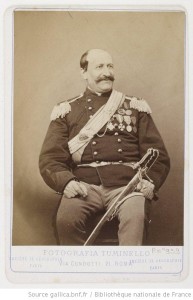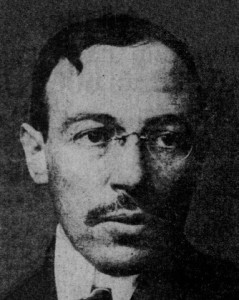Stel Pavlou
Ravioli, Camillo
 Camillo Ravioli (1820-1907) was the author of an 1859 monograph that was republished in 1998 as Prima Tellus- La dissertazione sulla Gigantèa dell’isola di Gozo[1061] which includes an introductory essay by Siro Tacito. Ravioli discusses Gozo and its relationship with an Italian Atlantis. He was obviously influenced by the better known Angelo Mazzoldi.
Camillo Ravioli (1820-1907) was the author of an 1859 monograph that was republished in 1998 as Prima Tellus- La dissertazione sulla Gigantèa dell’isola di Gozo[1061] which includes an introductory essay by Siro Tacito. Ravioli discusses Gozo and its relationship with an Italian Atlantis. He was obviously influenced by the better known Angelo Mazzoldi.
>Stel Pavlou‘s atlantipedia.com website, now offline, informed us that Ravioli “argued that Atlantis once spanned an area that included Gozo, Sardinia, Sicily and mainland Italy”.<
Brandenburg, Broughton
 Broughton Brandenburg was an American magazine writer during the beginning of the 20th century. Writing in the April 1906 edition of Appleton’s Booklovers Magazine he suggested that a discovery of submerged artefacts near Islas de Bahia (Bay Islands) off the coast of Honduras might be remnants of Atlantis.
Broughton Brandenburg was an American magazine writer during the beginning of the 20th century. Writing in the April 1906 edition of Appleton’s Booklovers Magazine he suggested that a discovery of submerged artefacts near Islas de Bahia (Bay Islands) off the coast of Honduras might be remnants of Atlantis.
Stel Pavlou on his Atlantipedia.com website has revealed that Brandenburg was also a serial fraudster(a).
(a) https://atlantipedia.com/doku.php?id=broughton_brandenburg
Tournefort, Joseph Pitton de
Joseph Pitton de Tournefort (1656-1708) sometimes referred to as “the Father of Botany”, strayed from his chosen field when he suggested that Atlantis had been located  in the Atlantic and that following an earthquake in the Mediterranean, the level of that sea rose causing an outflow into the Atlantic that swamped Atlantis. Sprague de Camp states that Tournefort got his idea from the Greek writer Strato of Lampsacus (c. 250 BC), who declared that the Black Sea had joined the Mediterranean when it overflowed into it and in a similar fashion the Mediterranean had joined the Atlantic.
in the Atlantic and that following an earthquake in the Mediterranean, the level of that sea rose causing an outflow into the Atlantic that swamped Atlantis. Sprague de Camp states that Tournefort got his idea from the Greek writer Strato of Lampsacus (c. 250 BC), who declared that the Black Sea had joined the Mediterranean when it overflowed into it and in a similar fashion the Mediterranean had joined the Atlantic.
Stel Pavlou (Atlantipedia.com) has traced Tournefort’s comments to the posthumously published Relation d’un voyage du Levant[1467] published in sets of two and three volumes. Kessinger has published a facsimile copy of volume 3 and the original French can also be read or downloaded from the Internet(a). An English translation was reportedly published in 1718.
Sage, Carla
Carla Sage, a British archaeologist, announced in November 2003 her support for a North African location for Atlantis, in particular she believed that the Gulf of Sidra (Syrtis Major) in Libya holds the remains of Atlantean ports. She was apparently impressed by ancient accounts that recorded how the Mycenaean, Cretan and Egyptian civilisations all traded with Atlantis. She concluded that this was improbable if Atlantis had been located in the Atlantic(a).
Sage contended that Atlantis had flourished when North Africa had been a very fertile region. However, desertification following a dramatic climate change led to the destruction of Atlantis by sand rather than water as described by Plato. Dr. Sage was reportedly planning a multinational expedition to seek concrete evidence to support her theories.
I have unsuccessfully endeavoured to locate an archaeologist named Carla Sage. The deafening silence in the intervening years has cast doubt on the factual correctness of the original press report, in fact, some are now happy to call it a hoax(b), a view that is not unreasonable. This has now been confirmed, as the Sage story originally appeared in the now defunct and largely fictional US tabloid magazine, Weekly World News, (11/11/2003). It was then picked by many less than diligent websites and took on a life of its own. I am indebted to Stel Pavlou for uncovering the origin of this story(c).
(a) See: Archive 2821
(b) https://atlantisonline.smfforfree2.com/index.php?topic=5834.0
